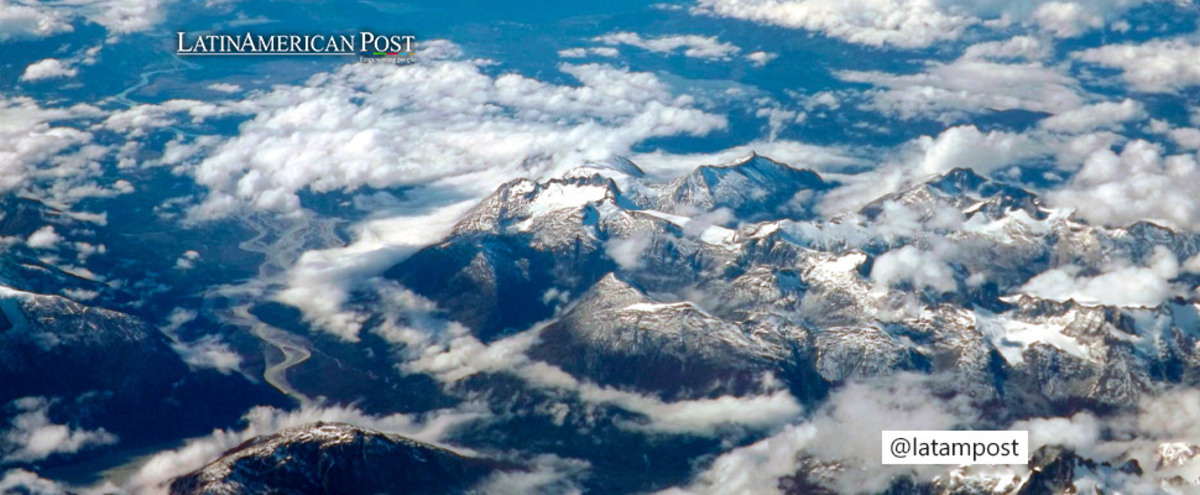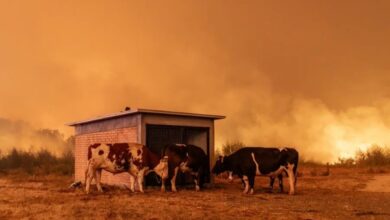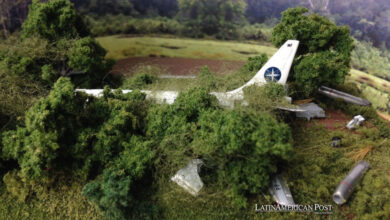Chilean Patagonia: Does it Have More Capacity to Capture CO₂ than the Amazon?
The Amazon is believed to be Latin America's main barrier to containing the effects of climate change. However, a recent study demonstrates the important role that Chilean Patagonia would play in capturing carbon, the main greenhouse gas.

Photo: Panoramio-Gillermo Adolfo
LatinAmerican Post | Julián Andrés Pastrana Cuéllar
Listen to this article
Leer en español: La Patagonia chilena: ¿Tiene más capacidad de capturar CO₂ que la Amazonía?
A new research published in the journal Austral Ecology would show the transcendental role played by Chilean Patagonia in the face of the climate crisis. The study was led by Jorge Francisco Pérez Quezada, a researcher at the Institute of Ecology and Biodiversity (IEB) and full professor in the Department of Environmental Sciences and Renewable Natural Resources at the University of Chile. With the support of six other people, he concluded that one hectare of the reserve, protected area, or national park in Chilean Patagonia could capture approximately twice as much carbon as a well-conserved or protected area in the Amazon.
This carbon released into the atmosphere, which is the main cause of the so-called greenhouse effect, is stored not only in Patagonia's forests but mainly in the so-called peatlands, which are wetlands where layers of decomposing organic matter accumulate. These bodies of water would retain about 1,700 tons of carbon per hectare, so their protection and conservation are essential.
We suggest you read: Infographic: Why Protecting Animals Sequesters Carbon and Limits Global Warming?
A Fundamental Ecosystem to Combat Climate Change
The Chilean teacher highlights that for decades the various ecosystems of Patagonia have retained carbon in their soil, as well as on leaf litter and biomass of plant specimens. The fact that Chilean Patagonia has such a great capacity to sequester said greenhouse effect gas is of capital importance for humanity. It is essential to make plans so that these types of places maintain their power to capture carbon and do not release, with their degradation, what they store.
The conclusion in this regard cannot be different from directing efforts to protect this ecosystem. However, the IEB researcher maintains that Chilean Patagonia has been threatened by subdivisions without sufficient regulation associated with deforestation and soil breakdown, all of these actions committed by man. The consequences can be enormous since they would lead to the loss of this ecosystem's capacity to accumulate carbon. In addition, hundreds of animal species live there that have their home in danger.
Poaching, water pollution, the salmon industry, the meat industry, and deforestation for human construction are some of the main dangers facing the region. Many areas are already showing erosion, desertification is advancing through areas of Patagonia, and the glaciers are melting.
Alert in Chile for the Degradation of the Environment and the Violation of Rights
The affectation of this emblematic Chilean region is not the only environmental problem that this South American country must face. According to David Boyd, UN's special rapporteur on fundamental guarantees and the environment, many vulnerable and marginalized communities in Chile, especially children and young people, are exposed to toxic substances, lack access to drinking water, polluted air with potentially lethal effects and environmental degradation. This was reported after a visit to the country where he visited various affected communities.
On the other hand, Chile is no stranger to the ravages of the climate crisis that has been reflected through phenomena such as droughts, forest fires, desertification, sea level rise, and coastal erosion. In this vein, David Boyd urged the Chilean government to adopt measures to ensure that the most vulnerable communities in this nation have access to non-toxic environments and clean water and air.
He also stressed that these initiatives are in line with respect for the human rights of these human groups. In particular, he urged respect for indigenous groups, from whom consent must be obtained for projects to be developed in their territory. "Boyd affirmed that the people who defend Chile's amazing natural heritage are heroes of the planet and of humanity and called on the government to respond quickly and positively to their concerns and recommendations," a United Nations statement said.
Undoubtedly, these ecological conservation measures must protect Chilean Patagonia, considering the crucial role that this region would play in mitigating the harmful effects of climate change on humans.





